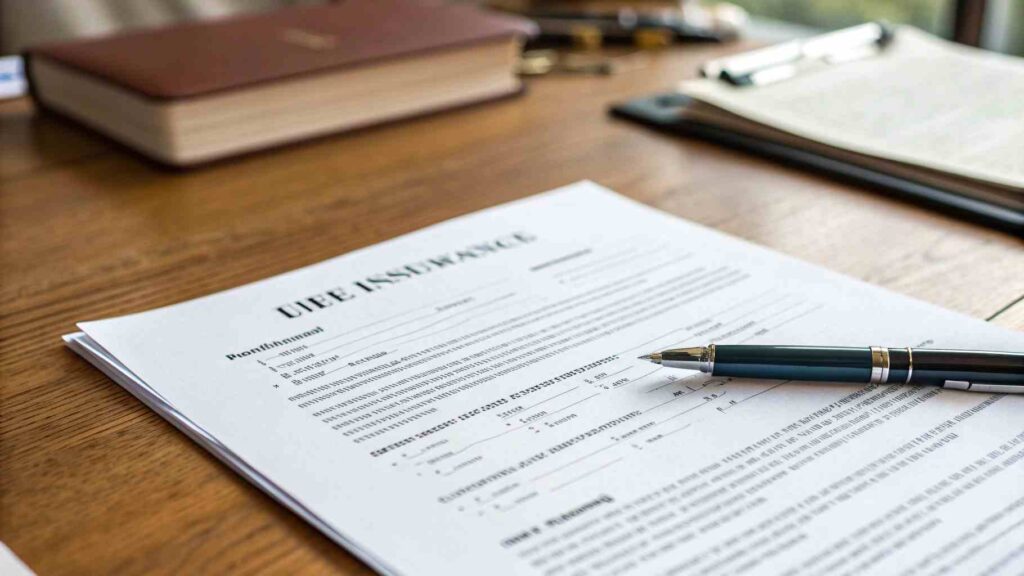Don’t put things like funeral plans, joint property, life insurance, or passwords in your will. In the UK, a will should be clear and only include things it can legally cover.
Stay with us as we talk more about what you should never put in your will UK. We’ll keep it simple and clear, so you can avoid mistakes and make the best choices for your loved ones.
Why It’s Important to Know What Not to Include?
Wills are legal documents—but they’re not a catch-all solution for everything you want to control after you pass away. Some things you might want to include are either legally ineffective, better suited for other types of documents, or inappropriate entirely.
Knowing what not to include ensures that your will remains valid, enforceable, and efficient in carrying out your wishes.
Funeral Instructions:
While it seems like a logical place, your will is not the right place for funeral arrangements.
Why It’s Problematic:
- Wills are often read after the funeral.
- Family may miss your instructions entirely.
- Time-sensitive decisions can’t wait for probate.
Better Option:
Create a separate “Letter of Wishes” detailing your preferences (burial, cremation, religious rites, etc.) and give it to your next of kin or solicitor.
Jointly Owned Property:
In the UK, property or bank accounts owned as joint tenants automatically pass to the surviving co-owner and cannot be willed away.
Why This Doesn’t Work:
- You don’t own the asset in isolation.
- Naming a different beneficiary in your will creates a conflict with the laws of survivorship.
Tip: If you want to pass your share to someone other than the joint owner, consider changing the ownership to “tenants in common” through legal processes.
Life Insurance Proceeds (with a Named Beneficiary)

If your life insurance policy names a specific person as the beneficiary, that person receives the payout directly, bypassing your will and estate.
Potential Issues:
- Duplicating instructions in your will causes confusion.
- Delay in probate may slow access to funds.
What You Should Do?
Keep your beneficiary designations up to date with your insurer. Only mention the policy in your will if it pays out to your estate.
Pension Benefits and Death-in-Service Schemes
Much like life insurance, these benefits usually go to the named beneficiary, not according to your will.
Why You Shouldn’t Include Them:
- They’re not legally controlled by your will.
- Providers make decisions based on nomination forms.
Best Practice:
Update your Expression of Wish form with your pension provider regularly, especially after major life events like marriage, divorce, or childbirth.
Digital Passwords and Login Information
With the rise of online banking, cryptocurrency, and social media accounts, your digital legacy is more important than ever.
Why You Shouldn’t List Passwords in a Will?
- Wills become public documents after probate.
- Exposes sensitive accounts to identity theft.
Safer Alternatives:
Use a password manager with legacy access options, or create a secure document (like a digital asset inventory) stored in a safe or with your solicitor.
Illegal, Immoral, or Discriminatory Requests
You may have personal views, but UK law does not allow you to enforce requests that break the law or violate human rights.
Examples of Prohibited Requests:
- Leave £1,000 to a racist organization.
- My daughter only inherits if she converts religions.
Legal Outcome:
Such clauses can be struck out by courts and may even jeopardize the legitimacy of other parts of your will.
Conditional Gifts That Are Hard to Monitor
While you can place certain conditions on gifts (e.g., age restrictions), you should avoid overly complex or unreasonable ones.
Problematic Conditions:
- My son can inherit if he stops smoking.
- My niece will receive the house if she never sells it.
Legal Risk:
These conditions are hard to verify, enforce, or justify, and may be challenged in court.
Alternative:
Use a discretionary trust if you want a trustee to manage decisions based on changing circumstances.
Assets in an Existing Trust:
If you’ve already transferred property or investments into a trust, they no longer belong to your estate.
Why You Can’t Include Them:
You don’t have legal ownership anymore, so you can’t give them through your will.
Tip: Coordinate with your trustee and make sure your will and trust don’t contradict each other.
Business Interests Without Proper Structure
Business succession is a complex matter, and leaving vague instructions in your will won’t cut it.
What Could Go Wrong:
- Conflict between co-owners and heirs.
- Business value may decline due to uncertainty.
- Tax liabilities may be triggered.
Solution: Work with a solicitor or accountant to create a business succession plan and possibly a shareholder agreement.
Assets Not Clearly Described:
Vague terms can lead to confusion, disputes, and legal costs.
Examples:
- “All my valuables” (what does this include?)
- “My jewelry” (which pieces, and to whom?)
Fix: List key assets in an itemized memorandum of personal property and refer to it in your will.
Guardian Appointments Without Consent
Appointing a guardian for your children is one of the most important uses of a will, but be sure to get consent first.
Why:
The courts will always act in the best interest of the child, and appointing someone unwilling or unsuitable could result in a court override.
Tip:
Have open conversations with the proposed guardian and include backups just in case.
Gifts That Can Cause Inheritance Tax Issues
You might unintentionally create a tax liability for your heirs by gifting assets without considering their value or the current Inheritance Tax (IHT) thresholds.
Example:
Leaving multiple properties without planning can trigger unexpected IHT bills.
Solution:
Speak with a financial advisor or estate planner about tax-efficient gifting, lifetime transfers, and charitable giving options.
The Legal Role of Executors and Why They Matter
Another key issue to address in your will is who you name as your executor. While this is something you should include, many people underestimate the complexity of the role and appoint someone unprepared.
Things Not to Do:
- Don’t appoint someone without asking.
- Don’t name a person who lives abroad without legal review.
- Don’t forget to name a backup executor.
Maintenance & Review: Update Your Will Regularly
Even a legally sound will can become outdated. You should review and revise your will in the following situations:
- Marriage or divorce
- Birth or adoption of children/grandchildren
- Death of a beneficiary or executor
- Major changes in assets (buying/selling property, inheritance)
- Changes in tax laws
A review every 3 to 5 years is a good general rule.
Summary: What You Should Never Put In Your Will (UK)
| ❌ Do Not Include | ✅ Better Option |
| Funeral instructions | Separate letter of wishes |
| Joint assets | Clarify ownership or change to tenants in common |
| Life insurance payouts | Update beneficiary directly with insurer |
| Pension benefits | Complete expression of wish forms |
| Passwords and PINs | Use a password manager |
| Illegal/immoral requests | Avoid; may invalidate your will |
| Complex conditional gifts | Use a trust |
| Trust assets | Coordinate with trust documents |
| Business instructions | Create formal succession plans |
| Vague descriptions | Use clear, itemized lists |
| Unapproved guardians | Get prior consent |
| Tax-heavy gifts | Plan with a tax advisor |
FAQ’s
1. What happens if I die without a will (intestate)?
If you pass away without a valid will, your estate is distributed according to the rules of intestacy in the UK. This means that the government’s statutory framework will determine who inherits your assets—which may not reflect your personal wishes.
2. What are the legal requirements for a valid will in the UK?
To ensure a will is legally binding, it must meet specific criteria. This typically includes being in writing, signed by you in the presence of at least two independent witnesses (who must also sign), and reflecting your clear intentions. Failing to meet these requirements could leave your will open to legal challenges.
3. Can I draft my own will, or should I consult a solicitor?
While it’s legally possible to write your own will (often referred to as a “DIY will”), using a solicitor or professional estate planner can help avoid ambiguity, ensure compliance with the legal formalities, and reduce the risk of mistakes that might result in your estate not being distributed according to your wishes.
4. How can I minimize the risk of my will being contested?
To limit disputes among potential heirs, clarity and precision in describing your intentions are essential. Including detailed explanations (where appropriate), using clear language, and consulting professionals when drafting your document can help. Also, discussing your decisions with your family in advance might reduce surprises and conflicts later.
5. What is involved in the probate process, and how long does it typically take?
Probate is the legal process that validates your will and oversees the distribution of your estate. The time frame can vary, largely depending on the complexity of your estate, the efficiency of the executor, and whether any disputes arise. While simple estates might be resolved in a matter of months, more complex cases can take a year or longer.
Conclusion:
Creating a will is more than just writing down who gets what—it’s about making sure your wishes are followed and your loved ones are protected. By knowing what not to include, you avoid costly mistakes and confusion. Plan smart, stay clear, and give your family peace of mind.






